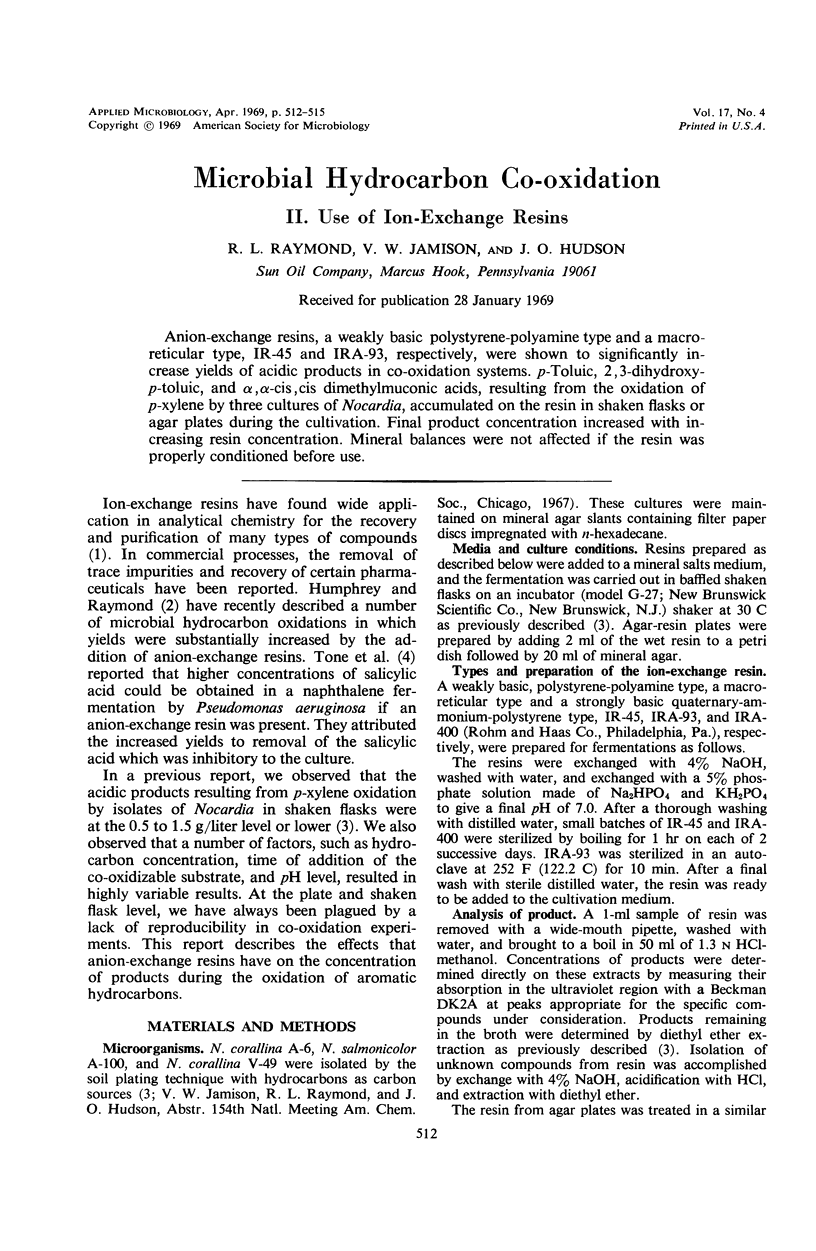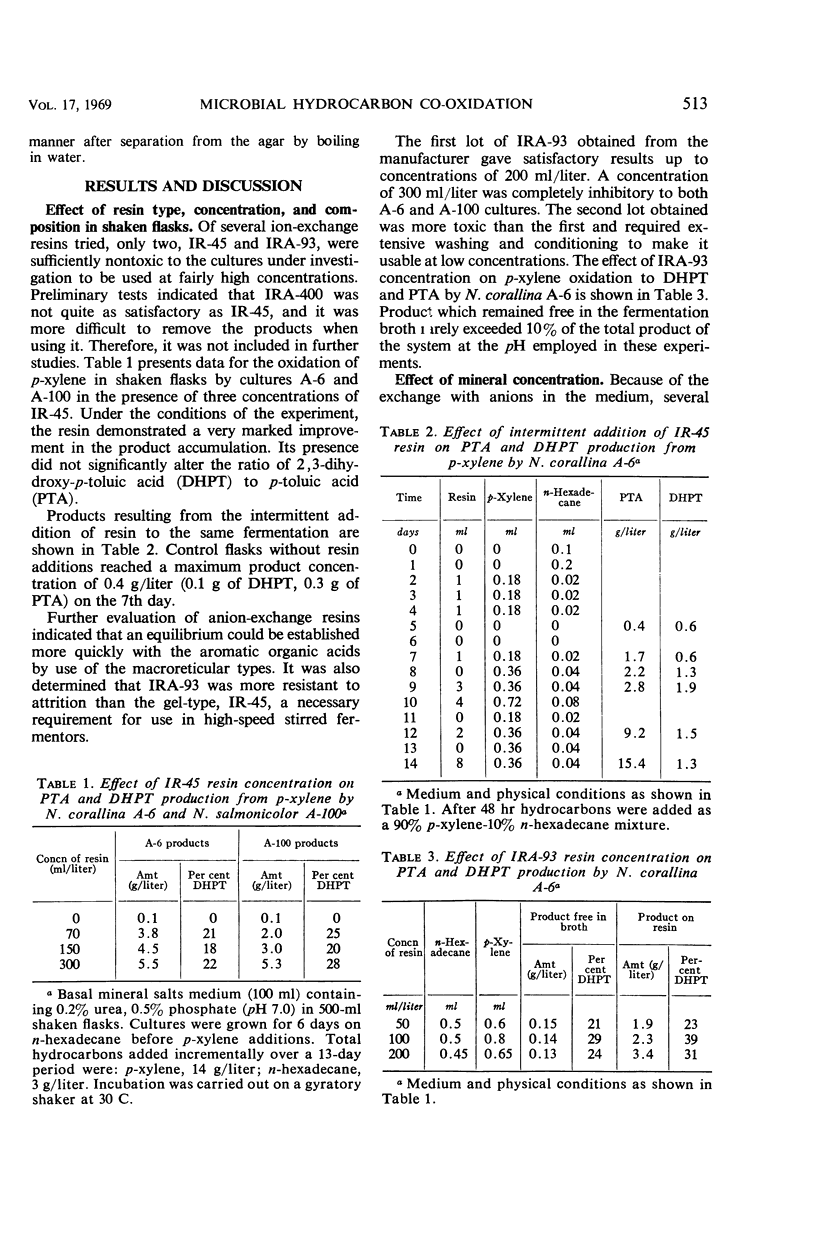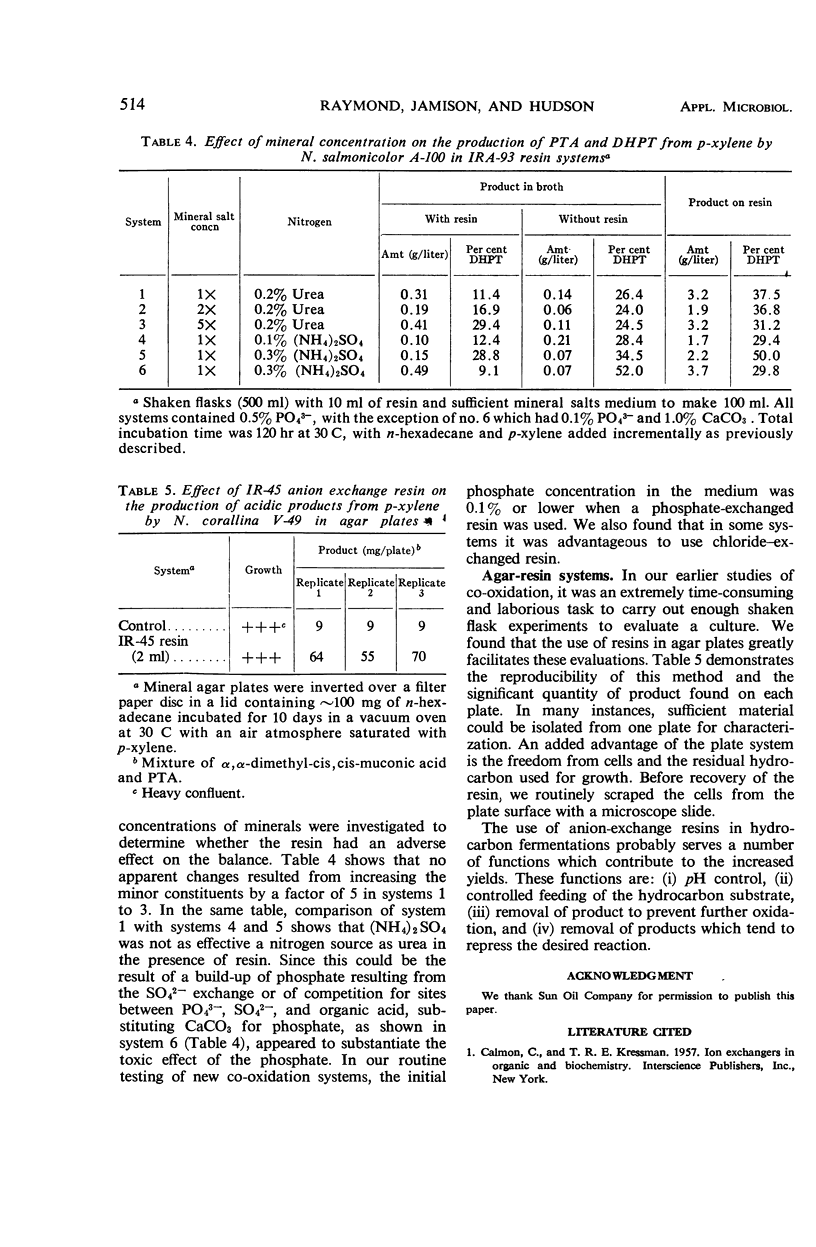Abstract
Anion-exchange resins, a weakly basic polystyrene-polyamine type and a macro-reticular type, IR-45 and IRA-93, respectively, were shown to significantly increase yields of acidic products in co-oxidation systems. p-Toluic, 2,3-dihydroxy-p-toluic, and α,α-cis,cis dimethylmuconic acids, resulting from the oxidation of p-xylene by three cultures of Nocardia, accumulated on the resin in shaken flasks or agar plates during the cultivation. Final product concentration increased with increasing resin concentration. Mineral balances were not affected if the resin was properly conditioned before use.
Full text
PDF



Selected References
These references are in PubMed. This may not be the complete list of references from this article.
- Raymond R. L., Jamison V. W., Hudson J. O. Microbial hydrocarbon co-oxidation. I. Oxidation of mono- and dicyclic hydrocarbons by soil isolates of the genus Nocardia. Appl Microbiol. 1967 Jul;15(4):857–865. doi: 10.1128/am.15.4.857-865.1967. [DOI] [PMC free article] [PubMed] [Google Scholar]



